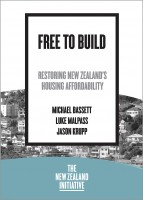Catastrophic consequences
One in seven of New Zealand’s 15-year-olds cannot read at a level considered requisite for basic participation in society, according to the 2009 Programme for International Student Assessment (PISA) study. But does this simply reflect natural variation in ability levels and the left-end of the bell curve? Read more





